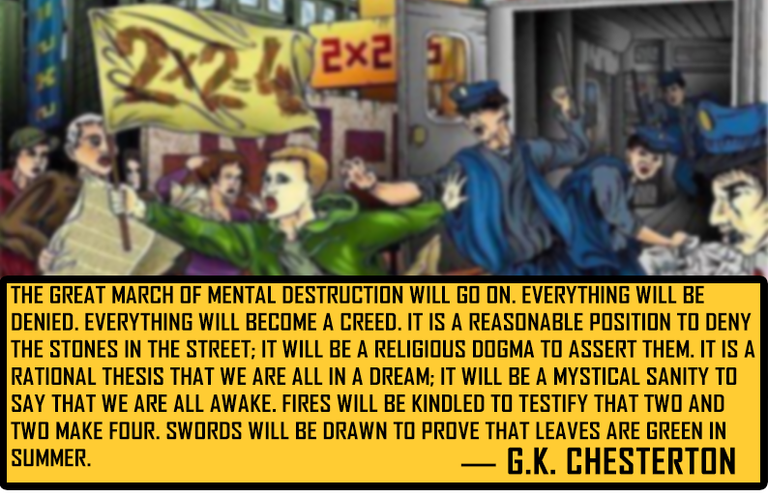
Truth is one of the most devalued and least understood concepts of our contemporary society. To speak about truth is to speak of some illogical and worthless niche for many of the society's members. It is incredible and worrying that people have little understanding of the concept of truth and the consequences that the simple fact of having a mistaken concept of what truth is and the implications of not understanding the concept could bring to our society - not to mention that we already suffer from it.
Truth for many is a relative concept, this is what predominates for most people as a concept of truth, without even knowing that the same implication already denotes an absolute truth. This concept is called relativistic epistemology and is exploited by the majority of politicians, minority groups and activists with their own intentions to create distortions in social reality, the fact of believing that there is no universal concept of what is true was explained by Protagoras who for his time was considered a sophist ("master of wisdom" in his etymological base).
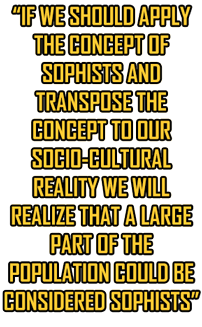
The concept of sophism is, and rightly so, a derogatory term. The Sophists were much criticized in their time, they were seen as demagogues, they had their own agenda and particular interests. They demanded the domination or monopolization of words so that they would be able to keep people in a state of ignorance and thus be easy to manipulate. They were not interested in the search for universal truth, they believed that everyone had their own truth, they were relativistic. If we should apply the concept of sophists and transpose the concept to our socio-cultural reality we will realize that a large part of the population could be considered sophists. For example, politicians who, through their mastery of rhetoric and oratory, present their truth through discursive strategies, in order to persuade as many people as possible in the audience, without them being interested in reviewing or looking beyond what they say or believe they know. They do not really seek a universal truth, they do not seek the truth that is feasible in reality. And why do I say all of them? Because it is in everyone's interest to seek the truth and yet they do not. The truth is meaningless in a society that is immersed in over-consumption and enslaved for stimuli and entertainment.
That's why Aldus Huxley said:
The perfect dictatorship would have the appearance of democracy, a prison without walls in which the prisoners would not dream of escape. A system of slavery where, through consumption and entertainment, slaves would love their servitude.


Source
But like all evil in history, there has always been its counterpart. By the time of the Sophists, there were people who opposed them in every aspect the philosophers, people who - literally - love knowledge. Socrates is considered the father of philosophy; one cannot speak of philosophy without speaking of a pre-Socratic and post-Socratic era. That's how great his influence on our Western society was. This philosopher is one of the most crucial and enigmatic characters in the history of human history, his lessons are still tangible today. Socrates lived his life without writing anything, he believed that every human being had the ability to reason within himself if asked the right question. For Socrates, the truth was a continuous search for an element that was undoubtedly everlasting and infinite.
He claimed that the truth was inaccessible for human beings:

Many misunderstood this phrase by arguing that he meant that we were all ignorant, no, he did not. He was accepting the greatness of our universe, he was acknowledging that there's a truth that is transcendent from all human beings and we will never be able to reach it, all we can do about it is to follow it.

Socrates demanded to be faithful to the definition of things, so we should and must be faithful to the search for truth. In this way, everything that is presented as true or true must be judged with a critical and analytical attitude at first sight, and then propose the true meaning of what is criticized. He adds that we should not be satisfied with the critical analysis of major issues but should offer a sense of universal truth that is beyond our understanding.
Without a doubt with these foundations it is evident that the lessons of Socrates at that time would undoubtedly fit in with a critique of our society in the 21st century, almost after 2400 years; since today in our contemporary society, criticisms of all kinds of different approaches or world problems are evident but without providing solutions for the resolution of these conflicts; current ideologues or intellectuals remain at the level of critics, do not give meaning to their work and therefore, their work lacks a position on truth and universal understanding so that it can be used for the improvement of society and the solution of our social problems. Therefore, Socrates went much further than the Sophists in this sense, and therefore his contributions and inputs are undeniable not only worth to the academic and scientific community, but to the whole world.
Plato and Aristotle, both pupils of Socrates. On the one hand, Plato adheres to the ideas of Socrates. Although its intention is to explain with certainty what it is and what it is not. Plato affirms that well-meaning Socratic discussion and search is not enough. He was clear that nothing could be given as definitely true or false, if each man defines for himself what things are - with this he asserts that there are varying interpretations, not facts. Plato proposes that we should seek objective guarantees for our language. So, he is interested in the knowledge of the ideal realities that give meaning to particular things - The World of Ideas - which he explained throughout the allegory of the cave.
In this approach, Plato clearly states that it is not enough to criticize and give meaning to criticism, but that we must seek a truth through ideas so that it is objective and valid for everyone. Therefore, the world of ideas that is the foundation of the existing is the good. And in him is the truth.
On the other hand, we have Aristotle, who rejects the world of Plato's ideas. Aristotle searches for the reality of things; he goes in search of man as he is and judges his nature with a human pattern, the opinions of others, past and present, help him to find the moral nature of the human being. Then the man must be what he is.

What it is about human behavior is known as ethics, where happiness is the aim of life, therefore it has to do with human nature. Happiness is the result of human reason, which belongs only to man. Therefore, "the ultimate goal of man is to obtain happiness" (1). This is neither affection nor pleasure. For this reason, man must seek happiness in intellectual life. Happiness consists in the exercise of the supreme freedom of man, which results from living according to his nature" (2). This man must have an intellectual life and a virtuous life. The first has to do with rational capacity and the second with will. But, we have to say that not all men can develop intellectual capacity at the same level; therefore, they cannot achieve happiness at the same level. Finally, that happiness is not pleasure, does not limit the enjoyment of sensitive pleasures and other goods that do not prevent the contemplation of the truth.
Briefly, for Aristotle, the search for truth is found in the search for happiness, which is why it is the goal of every man. This implies that rational capacity must be improved and that it must be in accordance with feelings and affection.
 Source
SourceThe search for truth has been subject to our nature, whether it was Aristotle who defined it with his ideas about happiness or the search for truth itself through religions. The search for truth is inherent in the human being. However, is it really this way in a society where stimuli and emotions are more important than rationality and facts?

The relativistic stance that was mentioned previously has a correlation with what in the past was known as tergiversation and today we call post-truth, the deliberate distortion of reality, which aims to create and shape public opinion and influence social attitudes, in which objective facts have less influence than appeals to emotions and personal beliefs. Post-truth is a time of dishonesty and deceit where truth has no significant value.
The post-truth finds its humus in the supposed fantasy of some, which until a few years ago was called blatant ignorance. The concept is nourished by trust in fallacious statements that feel true but have no support or backing in objective reality. It is, thus, a very important part of the story.
The concept is nourished by trust in fallacious statements that feel true but have no support or backing in objective reality. It is, hence, a fallacious notion that is reinforced as a shared belief in the society's narrative.
Post-truth, in simple words, is when truth does not matter and is replaced by preference and subjectivity. The truth for our contemporary society means what most people think.
This way of interpreting the truth has harmful consequences for our social and political lives. The more the consideration for subjectivity and emotions grows, the more the value of truth is devalued. This is one of the reasons why antagonism prevails at the social and political levels.
An example of this is the porn actress Amarna Miller from Spain who proudly claims pornography as a progressive practice. The actress argues:
My body is mine and I can do with it as I please
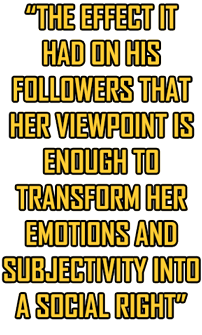
With this claim the actress is expressing this culture of post-truth, in which subjectivity is transformed into a collective justification. This statement is not only wrong about the absolute ownership of the body - there is no such thing - but the effect it had on his followers that her viewpoint is enough to transform her emotions and subjectivity into a social right: that of spreading and earning money through pornography (a reasoning of the principles of gender feminism). These expressions are already common speeches of the citizens and express what could be determined as a collective mentality and incompatible with reality.
The post-truth is further aggravated by his contempt for virtues. In Aristotelian Greece, the greatest insult was to be considered apolitical, a condition that is granted without being viewed in a derogatory light. The cause of the insult was the mentality of the Greek citizens. For them, doing politics meant the public exercise of their personal virtues. An apolitical man was a man without virtuous attributes, a vicious man.

Source
Post-truth is not a specific fact of politics, nor has it arisen right now, but the consequence of the hegemonic moral culture, the culture of disassociation, very connected to the subjectivity of the realm of emotions. It is true what excites me, what I feel, because I recognize myself in this feeling, hence my feelings are the truth. So, this is the real thing, this is the truth.
Until it is really understood how dangerous it can be to have a misconception about the truth, our society will end up devolving and all the progress we have made will have been in vain.


Source
All truths are absolute. The truth will always be the truth. And its importance is the most fundamental element of our society. In this post-truth era, it is said that objective truth does not exist and that it is only a product of one person's culture. The truth itself has a transcendental value and is beyond human understanding, that is why we seek to get as close as we can to the truth, that is, we follow it. We spend trillions and trillions of dollars on research to find out the truth. Whether through the scientific method, through reasoning and the use of logic, through religion, you name it. Unlike this, lies and misrepresentation of concepts are free and easy to use. Everyone has a lie to tell, not everyone will always tell the truth.

Feelings and interpretations cannot change the facts, no matter how sincere you think you are or want to be. Someone may sincerely believe in something, but if it is not true it means that that person is making a mistake. When the Socialists believe that their ideology is the best in an honest and sincere way and that it has not failed due to various factors such as Lenin's theory of imperialism, interventionism, statism, etc.. They are simply wrong, not that they have any other truth than the others.
Truth is discovered, not invented. The truth exists regardless of how much knowledge one has about it. An example of this is the existence of gravity. Gravity has always existed and will always exist, and this is objectively true. It wasn't invented by Newton, it was discovered by him.
Besides this, the truth is transcultural. If something is true, it is true for everyone, everywhere and at all times. A good example of this is that two plus two is four for everyone, wherever and whenever.
The truth is unchangeable, despite our knowledge of the truth, we human beings perceive reality and therefore the truth, so we are subject to the interpretation of the truth. Society believed that the earth was flat when it was discovered that it was round and not flat, the truth about the earth did not change, what changed was our understanding and understanding of the earth.
Truth is not shaped by a person's attitudes and emotions by preaching the truth from his or her point of view. An arrogant person cannot make the truth he possesses false or a kind person can make the truth he possesses true.
The truth is relevant and important because it is the truth that sets us free, as the old adage goes. And the reason why truth is so ingrained in freedom is that it builds a great foundation to build whatever it is on. If we start with the lies, that lie always becomes a much bigger lie, and so it goes on and on. It does not matter how much you want to change the facts throughout lies, it will always end up failing.

And its importance is the most fundamental element for our society. In this post-truth era it is said that objective truth does not exist and that it is only a product of one person's culture. The truth itself has a transcendental value and is beyond human understanding, that is why we seek to get as close as we can to the truth, that is, we follow it. We spend trillions and trillions of dollars on research to find out the truth. Whether through the scientific method, through reasoning and the use of logic, through religion, you name it. Unlike this, lies and misrepresentation of concepts are free and easy to use. Everyone has a lie to tell, not everyone will always tell the truth.
Truth is the only solution to face these conjunctural issues that we live today: fascism, radical feminism, the flag-waving patriotism, you name it, and another endless social, cultural and political issues that distort our truth and make us dumber and dumber, as I said, only truth will set us free. Truth is the foundation for a just and orderly society. In the courts, we require witnesses to swear to tell the truth, the whole truth and nothing but the truth", because only in this way can we find the justification. Because it is only the truth that will make us walk the path of righteousness. Where is justice without truth? Where are love, faith, and integrity without truth? How can you who you are without truth? How can you find yourself without truth? Truth gives meaning to human lives, it is only truth and will always be the truth that provides us with this feeling of being, our purpose, our sense, and if we continue moving throughout the path of the ignorance, cognitive dissonance, and post-truth there is no further outcome than to go down to the dark ages once again.
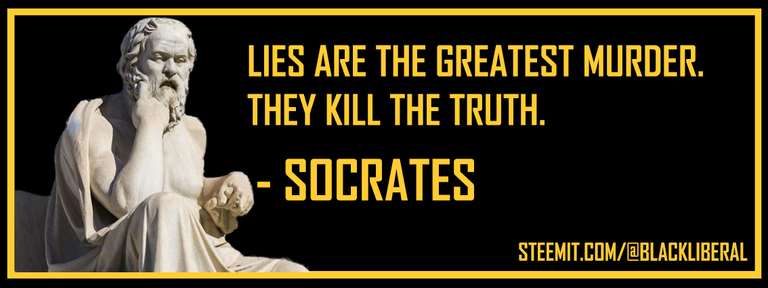
| Bibliographic References | |
|---|---|
| Introduction to Logic - Immanuel Kant | |
| La verdad de la 'posverdad' | |
| Le Dictionnaire philosophique (Spanish version) - Voltaire | |
| Post-verdad, nueva forma de la mentira | |
| The Promise of Politics - Hannah Arendt | |
| Why the post-truth political era might be around for a while |


Thanks for reading!
© 2001 - 2017 All rights reserved. steemit.com/@blackliberal | Terms & Conditions of Use | Privacy Policy
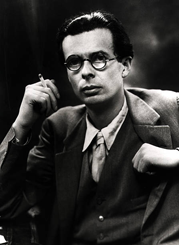



Curated for #informationwar (by @wakeupnd)
Our purpose is to encourage posts discussing Information War, Propaganda, Disinformation and other false narratives. We currently have over 7,500 Steem Power and 20+ people following the curation trail to support our mission.
Join our discord and chat with 150+ fellow Informationwar Activists.
Connect with fellow Informationwar writers in our Roll Call! InformationWar - Contributing Writers/Supporters: Roll Call Pt 8
Ways you can help the @informationwar
Great post, and a very important topic at that. Sometimes it feels easy to fall into a relativistic stupor. I think we certainly need to solidify and refine out general concept of truth as a society to help us all move forward (though this may be a pipedream). The crazy divide on this definition brings to mind the infuriating first podcast Sam Harris did with Jordan Peterson where they spent 2 hours arguing about the definition of truth, with Peterson being firmly entrenched in the relativistic interpretation.
Peterson might be one of the best intellectuals of our time. Nonetheless, I still disagree with him on certain subjects.
Truth is such a complicated subject. I have been studying this topic of truth and post-truth for a while.
People have this idea that everyone has its own truth... I have my own hypothesis
People do not like the truth, hence they have to judge what is and what is not in order to feel good about themselves
Our society is so into feelings and emotions that truth has become to be a second meaning concept.
Politicians use truth in order to legitimize themselves in power, by talking about relativism and connect with people.
Socrates and his I know, I know nothing. Sadly many do not recognize that this sentence is a contradiction in terms. It being a contradiction is why it is true. I would say to the Gadfly, please give me the dimensions of the tools you are using. If you cannot, are not your principals merely projections of your imagination (known today as objectivity). If so, why should I or anyone subject ourselves to your imagination.
I would say the exact same thing that I would share with Socrates too Aristotle. The objective truth is that all men/women have the capacity to develop intellectually. The subjective truth is that not all men/women choose to develop their intellectual capacity. Thus the below quote from your post is a objective truth that is dependent upon the principals garnered in the mind, which is dependent upon the mind being used.
The truth is dependent upon the senses of the mind seeking it, and is why we merely see shadows of the truth and not the truth directly (Allegory of the caves). The tools of the mind we use are after all imaginative (Principals) that cannot be measured directly. It is the fact that those principals are subject to the mind using them that render's truth to a shadow. Proving in my mind that each individual is the king of his universe. Rendering us all by natural law Kings without vassals. We become slaves when we seek to break natrual law by enslaving others to our objective principals.
I am impressed with your post. A very nice historical rendition of the philosophy of the past.
We cannot lead the world into a better one if we do not start with the wisdom shared with us in the past. So I decided to go back to the firsts that answered the questions of what truth was or whether it was relative or not. Today the concept of truth seems to have no material value for the people. Today is all about feelings and sensations. A world deepens in its own egocentrism that everyone owns the truth.
Kind of funny, but if you see my original comment I reversed objective and subjective. I agree with you that wherever it is not necessary we should not attempt to reinvent the wheel. I only wish that the reward for writing the post was commiserate with its value. If it was you could have a nice vacation this year. A well deserved one at that.
Nice post!
Congratulations! This post has been upvoted from the communal account, @minnowsupport, by BlackLibertario💡 from the Minnow Support Project. It's a witness project run by aggroed, ausbitbank, teamsteem, theprophet0, someguy123, neoxian, followbtcnews, and netuoso. The goal is to help Steemit grow by supporting Minnows. Please find us at the Peace, Abundance, and Liberty Network (PALnet) Discord Channel. It's a completely public and open space to all members of the Steemit community who voluntarily choose to be there.
If you would like to delegate to the Minnow Support Project you can do so by clicking on the following links: 50SP, 100SP, 250SP, 500SP, 1000SP, 5000SP.
Be sure to leave at least 50SP undelegated on your account.